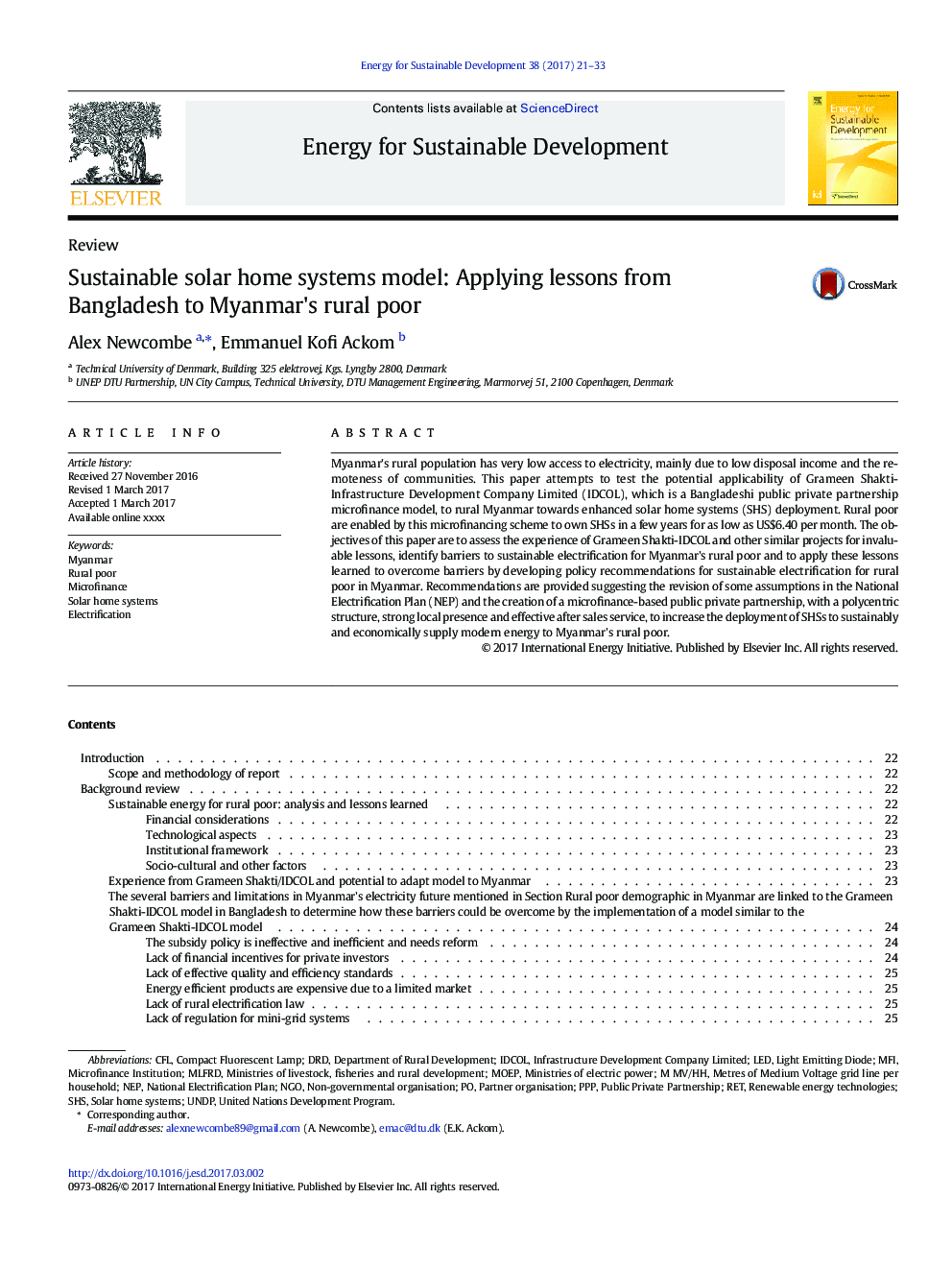| Article ID | Journal | Published Year | Pages | File Type |
|---|---|---|---|---|
| 5114367 | Energy for Sustainable Development | 2017 | 13 Pages |
Abstract
Myanmar's rural population has very low access to electricity, mainly due to low disposal income and the remoteness of communities. This paper attempts to test the potential applicability of Grameen Shakti-Infrastructure Development Company Limited (IDCOL), which is a Bangladeshi public private partnership microfinance model, to rural Myanmar towards enhanced solar home systems (SHS) deployment. Rural poor are enabled by this microfinancing scheme to own SHSs in a few years for as low as US$6.40 per month. The objectives of this paper are to assess the experience of Grameen Shakti-IDCOL and other similar projects for invaluable lessons, identify barriers to sustainable electrification for Myanmar's rural poor and to apply these lessons learned to overcome barriers by developing policy recommendations for sustainable electrification for rural poor in Myanmar. Recommendations are provided suggesting the revision of some assumptions in the National Electrification Plan (NEP) and the creation of a microfinance-based public private partnership, with a polycentric structure, strong local presence and effective after sales service, to increase the deployment of SHSs to sustainably and economically supply modern energy to Myanmar's rural poor.
Keywords
Related Topics
Physical Sciences and Engineering
Energy
Energy (General)
Authors
Alex Newcombe, Emmanuel Kofi Ackom,
